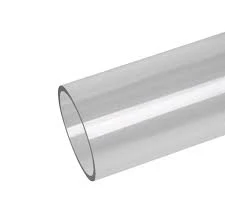Dec . 31, 2024 22:53 Back to list
High-Density Polyethylene Pipe Options for Durable Black Piping Solutions
The Benefits and Applications of Black HDPE Pipe
High-Density Polyethylene (HDPE) pipe has become an essential material in various industries, thanks to its impressive characteristics and versatility. Specifically, the black HDPE pipe stands out due to its unique properties, making it an invaluable choice for many applications. This article explores the benefits, features, and common uses of black HDPE pipe, emphasizing why many industries prefer it over traditional piping materials.
What is Black HDPE Pipe?
Black HDPE pipe is a type of thermoplastic pipe made from high-density polyethylene. This pipe is characterized by its dark color, which is achieved by adding carbon black pigment during the manufacturing process. This pigmentation provides several advantages, including increased resistance to UV radiation and prolonged lifespan in outdoor applications.
Key Benefits of Black HDPE Pipe
1. Durability One of the most significant advantages of black HDPE pipe is its exceptional durability. It can withstand harsh environmental conditions, including extreme temperatures and pressure fluctuations. This resilience makes it suitable for a wide range of applications, from agricultural to industrial uses.
2. Corrosion Resistance Unlike metal pipes, black HDPE pipe does not rust or corrode, which is a major concern when transporting water or other fluids. This property ensures that the integrity of the pipe is maintained over time, reducing the need for frequent replacements and maintenance.
3. Flexibility HDPE pipe is highly flexible, allowing for easy bending and installation around obstacles. This flexibility minimizes the need for fittings and joints, which can be potential points of failure in piping systems.
4. Lightweight The lightweight nature of black HDPE pipe simplifies handling and installation. Workers can easily transport longer sections of pipe without the need for heavy machinery, resulting in lower labor costs and time savings during installation.
5. Environmental Impact HDPE pipe is considered a more environmentally friendly option compared to traditional materials. It is recyclable, reducing landfill waste. Moreover, its long lifecycle means less frequent replacements and lower resource consumption over time.
black hdpe pipe

Common Applications of Black HDPE Pipe
Black HDPE pipe is widely used in various sectors due to its advantageous properties
- Water Distribution Municipal water systems frequently employ black HDPE pipe for delivering potable water. Its resistance to corrosion and biological growth ensures the quality of drinking water is maintained.
- Irrigation Agriculture relies heavily on efficient water distribution for irrigation purposes. Black HDPE pipes are used in drip and sprinkler systems, providing reliable and efficient water delivery to crops.
- Sewage and Wastewater The pipe’s ability to resist chemical exposure makes it an excellent choice for sewage and wastewater management systems. Its robust structure ensures long-term performance in challenging environments.
- Gas Distribution Black HDPE pipes are often utilized in the distribution of natural gas. Their durability and safety features make them a preferred option for transporting harmful substances.
- Mining and Industrial Use In mining and industrial applications, black HDPE pipe is used for transporting slurries and other materials due to its strength and versatility.
Conclusion
In summary, black HDPE pipe is a robust and efficient solution for a wide array of applications across various industries. Its durability, flexibility, and resistance to corrosion make it a preferred choice over traditional piping materials. As industries continue to evolve, the use of black HDPE pipe is likely to grow, driven by the need for reliable, cost-effective, and environmentally sustainable solutions. Whether in water distribution, irrigation, or industrial applications, black HDPE pipe is a testament to modern engineering and innovation, paving the way for more sustainable infrastructure practices.
-
Durable PP Rigid Sheet: Lightweight, Chemical Resistant Solutions
NewsAug.21,2025
-
PVC Grey Sheet for Extraction: Chemical Resistant & Durable
NewsAug.19,2025
-
Durable PVC Pipe Fittings for Plumbing & Irrigation Needs
NewsAug.18,2025
-
HDPE Steel Belt Reinforced Spiral Corrugated Pipe | High Strength
NewsAug.17,2025
-
HDPE Pipe Fittings: Durable, Leak-Proof Solutions
NewsAug.16,2025
-
Premium CPVC Sheet: High-Temp & Chemical Resistant Solutions
NewsAug.15,2025

